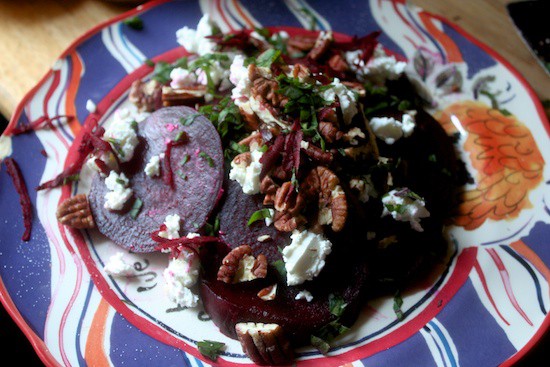A little bit of insight into nuts being a bit more healthy for you than some people originally thought [for those not allergic, of course]:
A series of large studies, including the Nurses’ Health Study of 76,464 women and the Health Professionals Follow-Up Study of 42,498 men, found that the more nuts people consumed, the less likely they were to die at any given age, especially of cancer or heart disease. And a clinical trial conducted in Spain showed that death rates were lower among those consuming a Mediterranean diet supplemented with extra nuts.
However, these studies were conducted almost entirely among relatively well-to-do, well educated, white individuals, and despite the researchers’ care in controlling for other factors that could have influenced the results, there remained the possibility that characteristics of the participants other than nut consumption could account for their reduced death rates.
Now, strong links between nuts and peanuts and better health have also been found in a major study of people from lower socioeconomic backgrounds and varied ethnic groups — blacks, whites and Asians — many of whom had serious risk factors for premature death, like smoking, obesity, high blood pressure and diabetes.
The results were published in March in JAMA Internal Medicine by researchers at Vanderbilt University School of Medicine. Their study, conducted among more than 200,000 men and women in the Southern United States and Shanghai, found that the more nuts people consumed, the lower their death rates from all causes and especially from heart disease and stroke. [source]
So, let’s talk about nuts and what makes them so healthy, shall we?
Peanuts, walnuts, pecans, almonds, macadamia nuts, and many other kinds of nuts have gotten a really bad rap because they’re high in fat, which also means they’re high in calories… and, many people use “high in calories” as a reason to never have any. Except, the answer to dealing with high-calorie ingredients is usually “consume in small quantities,” not “ban them altogether.” And why?
Because there’s more to healthy living than watching your weight! There are extremely high quality healthy fats naturally hiding within nuts – omega-3 fatty acids, the same ones you often hear about in regard to fish and krill oil – that are good for your brain, your heart, your bones, your cholesterol, and other important parts of your system that help your body run optimally and keep you in good health as you age.
Do I think nuts are a great snack? Possibly not – nuts as a snack are how people tend to overindulge considering how many people snack wrong, anyway. What nuts are, however, are a great way to add flavor to an already-healthy meal. Be it pecans to a beet salad, or peanuts added to top off a stir-fry, adding a few nuts to your meal adds texture – that ‘crunch’ that so many people miss – and a variety in taste to what’s on your place.
And, apparently, you have very little to worry about in terms of weight gain:
[A] review of studies of large populations here and abroad by Richard D. Mattes of Purdue University and co-authors most often found that adults who eat nuts weigh less than nut avoiders. And children who ate peanuts usually had a lower body mass index than those who did not.
Clinical trials found that adding lots of nuts to one’s diet had a limited effect on body weight. But more important, participants in studies that included nuts in a weight-loss regimen lost more weight and ended up with a smaller waist and less body fat than participants who did not eat nuts.
One explanation for the weight control benefit of nuts is the satiation provided by their high fat and protein content, which can reduce snacking on sweets and other carbohydrates. Another is that all the calories in nuts, especially whole nuts, may not be absorbed because they resist breakdown by body enzymes.
Finally, in a 2013 study in The British Journal of Nutrition, Dr. Mattes and colleagues reported that consuming peanut butter or peanuts for breakfast helps to control hunger, stabilizing blood sugar and reducing the desire to eat for up to 8 to 12 hours. (My favorite breakfast: half a banana, sliced, with each slice topped by a half-teaspoon of crunchy peanut butter.) [source]
If you are concerned about the addition of this nutritional dynamo to your diet, all you’ve got to do is be careful about your portions! But, rest assured, you’re better off adding a little crushed almond to your Greek yogurt or oatmeal than skipping them entirely out of fear!


1 comment
I would add that what you put your nut butter on also makes a big difference. Smear it over a stalk of celery and skip the 200 cal slice of bread.
Comments are closed.